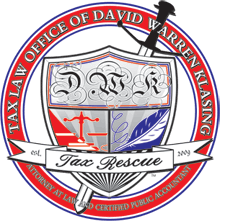
Tax Law Offices of David W. Klasing
There is effectively a small window of time available to those who have engaged in domestic or international tax fraud to clean up their tax accounts through voluntary disclosure or other means.
SAN DIEGO (PRWEB)
May 08, 2020
Through various means, including its initiatives announced on its website, the IRS has announced that it will be scaling back much of its enforcement efforts during the Coronavirus crisis. For instance, the People First Initiative indicates that the IRS does not plan on opening new examinations during the Coronavirus pandemic. There are a few exceptions to the IRS suspension of new audits, including instances where the taxpayer initiates the action (such as a refund claim) or the statute of limitations is expiring.
All in all, the message being sent by the IRS initiatives limiting in-person contact is simple: although the IRS is open for business, they will not open new examinations until the pandemic is over. We expect a large wave of enforcement once things get back to relative normalcy for the following reasons.
-
The Treasury has indicated that many businesses that took out a PPL loan will face an audit. - It only makes sense that after the Treasury extends out 2 Trillion in forgivable Covid – 19 aid that it will be looking to recoup the funds through the tax system.
- IRS personnel are going to have less time to conduct audits and will most likely go for the low hanging fruit.
- Criminal prosecution for tax fraud goes a long way to create compliance in everyone else.
- The federal deficit is projected to reach 17.8 Trillion by the end of the 2020.
There is effectively a small window of time available to those who have engaged in domestic or international tax fraud (e.g., failing to file an FBAR, failing to file informational returns for controlled foreign corporations, foreign partnerships, foreign trusts etc., coupled with failing to include taxable income from foreign sources) to clean up their tax accounts through a voluntary disclosure or other means.
Generally, those who have willfully failed to comply with federal or state tax laws can avoid criminal prosecution through strategies such as domestic or offshore voluntary disclosures. You will work with your experienced tax defense attorney to determine whether a voluntary disclosure is right for you.
See the full version of this article Here
Share article on social media or email:

